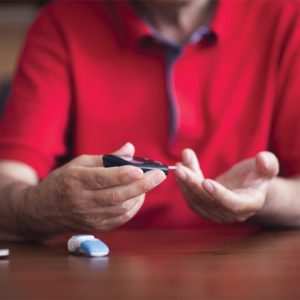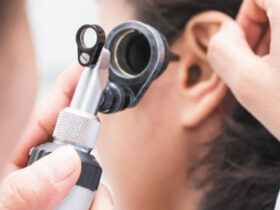 Each year, November is observed as Diabetes Awareness Month, which is an international health campaign to increase awareness and help understand the impact of the disease. According to the American Diabetes Association, 30.3 million Americans had diabetes in 2015 and 7.2 million of those were undiagnosed.1 Awareness is especially important this time of year when healthy eating habits tend to take a back seat. Whether it’s large holiday feasts, office parties, food gift baskets, or holiday happy hours, there are plenty of occasions to indulge, either raising the risk of developing type 2 diabetes or increasing danger for those who have not yet been diagnosed. Type 2 diabetes accounts for 90-95% of cases.
Each year, November is observed as Diabetes Awareness Month, which is an international health campaign to increase awareness and help understand the impact of the disease. According to the American Diabetes Association, 30.3 million Americans had diabetes in 2015 and 7.2 million of those were undiagnosed.1 Awareness is especially important this time of year when healthy eating habits tend to take a back seat. Whether it’s large holiday feasts, office parties, food gift baskets, or holiday happy hours, there are plenty of occasions to indulge, either raising the risk of developing type 2 diabetes or increasing danger for those who have not yet been diagnosed. Type 2 diabetes accounts for 90-95% of cases.
What is diabetes? There are three different types of diabetes (Type 1, Type 2, and Gestational) and is caused by a buildup of glucose or sugar in the blood. This is due to not enough insulin being made by the body, or the body can’t use its own insulin properly. When this happens, food is not properly processed for use as energy. “Diabetes is a silent killer as it can be asymptomatic in many cases, and most are not aware of its imminent risk,” says Dr. Manuel Jimenez Rodriguez, Board Certified in Internal Medicine at Physicians Regional Healthcare System. “For this reason, even if diabetes is diagnosed, some don’t take it seriously enough.”
What makes the condition so dangerous is the fact that it can cause serious health complications that include heart disease, stroke, kidney disease, and even lower-extremity amputations. Other issues include eye problems, dental disease, and nerve damage. Some telltale warning signs of diabetes are increased urination, fatigue, increased thirst, numbness or a burning sensation in the lower extremities, blurry vision, cuts and bruises that are slow to heal, and unexplained weight loss. “Recognizing these symptoms is important so that early detection and treatment can begin,” says Dr. Jimenez Rodriguez. “This can help decrease the risk of developing complications”. Dr. Jimenez Rodriquez also notes that screening should begin at age 45 for most people and at 40 for those who are considered overweight.
While there are different causes of diabetes, the most notable, especially for type 2 diabetes are obesity and lifestyle factors that include diet and physical activity. “Diet and exercise are probably two of the most important ways to prevent diabetes,” says Dr. Jimenez Rodriguez. The National Institute of Diabetes and Digestive and Kidney Diseases suggests three methods to help lower risk of developing type 2 diabetes.2
1) Lose weight and keep it off. You may be able to prevent or delay diabetes by losing 5 to 7 percent of your starting weight. For instance, if you weigh 200 pounds, your goal would be to lose about 10 to 14 pounds.
2) Move more. Get at least 30 minutes of physical activity 5 days a week. If you have not been active, talk with your health care professional about which activities are best. Start slowly to build up to your goal.
3) Eat healthy foods most of the time. Eat smaller portions to reduce the amount of calories you eat each day and help you lose weight. Choosing foods with less fat is another way to reduce calories. Drink water instead of sweetened beverages.
Dr. Jimenez Rodriguez also points to eating a well-balanced diet with foods that contain a low glycemic index to help prevent or delay type 2 diabetes. This means foods that slowly raise blood glucose. Examples include whole grains, dried beans and legumes, non-starchy vegetables such as broccoli, cabbage, lettuce, peppers, tomatoes, cauliflower and eggplant, and fruits such as cherries, grapefruit, pears, apples, oranges, grapes and strawberries.
There is currently no known treatment that will permanently eliminate type 2 diabetes, however there are ways to help manage it and live a long, healthy life. Healthy eating, physical activity, and blood glucose testing are some of the ways in which it can be managed. In addition, some with type 2 diabetes require oral medication, insulin, or both.
Dr. Jimenez Rodriguez’s office is located in Naples at Physicians Regional – Pine Ridge,
6101 Pine Ridge Rd. For more information or to schedule an appointment, please call
239-348-4221, or schedule online at www.PhysiciansRegionalMedicalGroup.com.
1 http://www.diabetes.org/diabetes-basics/statistics/
2 https://www.niddk.nih.gov/health-information/diabetes/overview/preventing-type-2-diabetes










